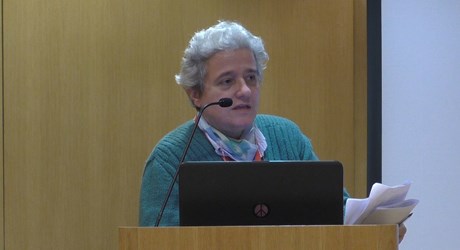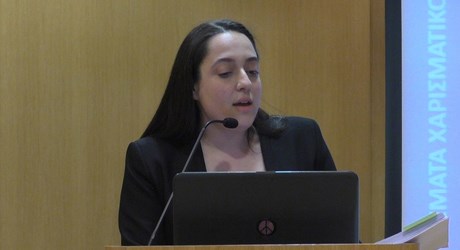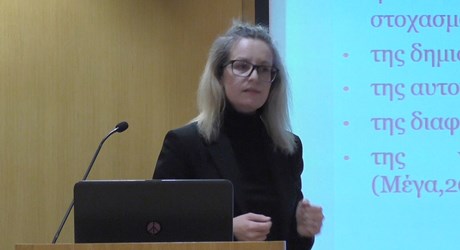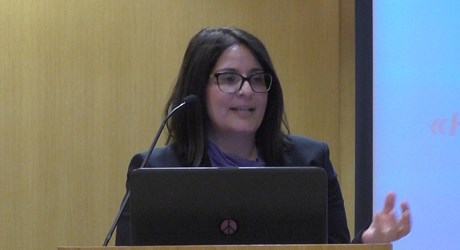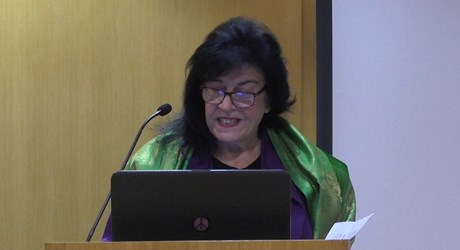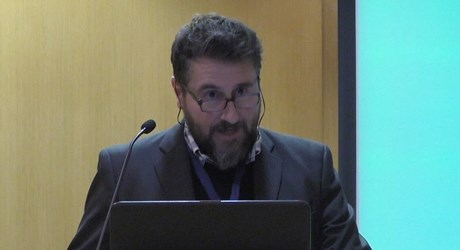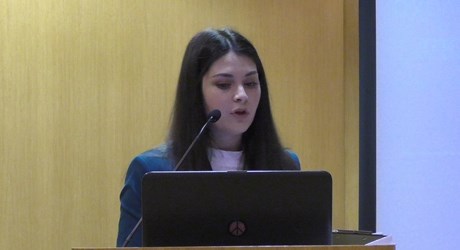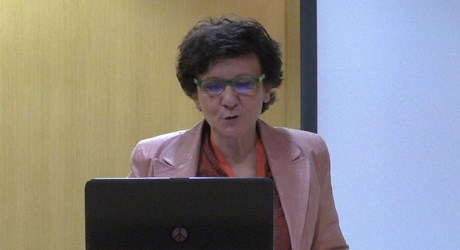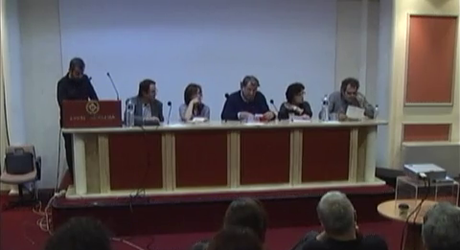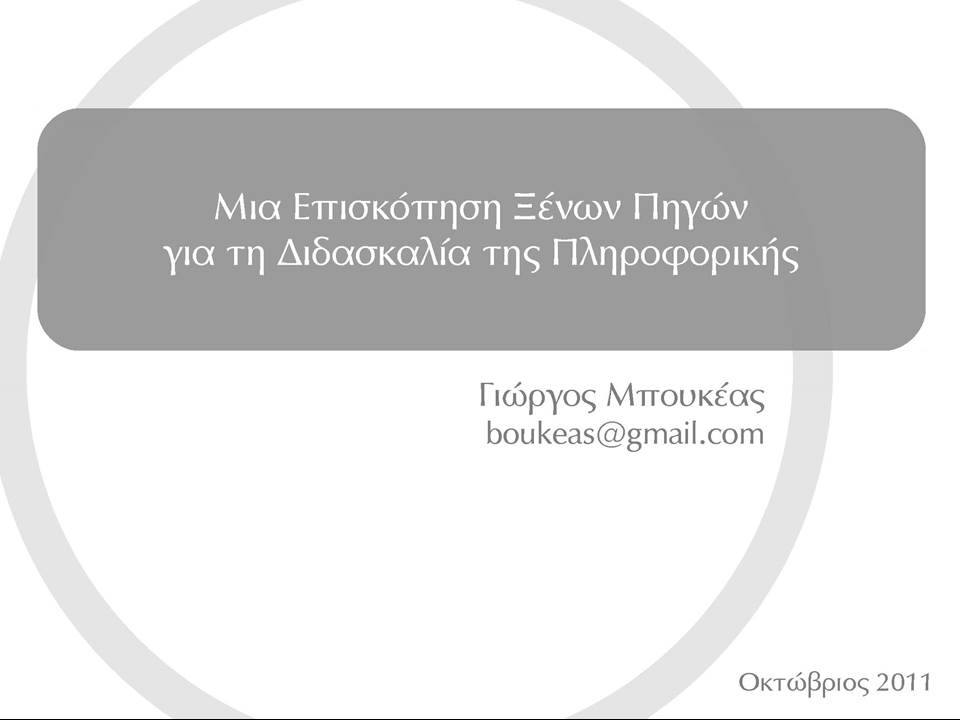
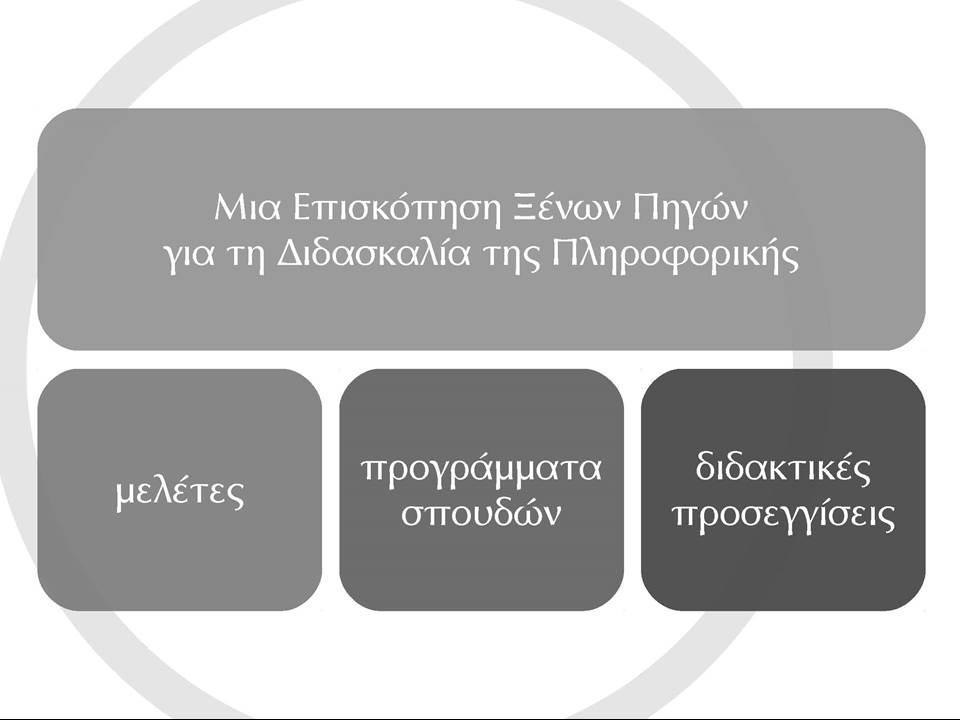
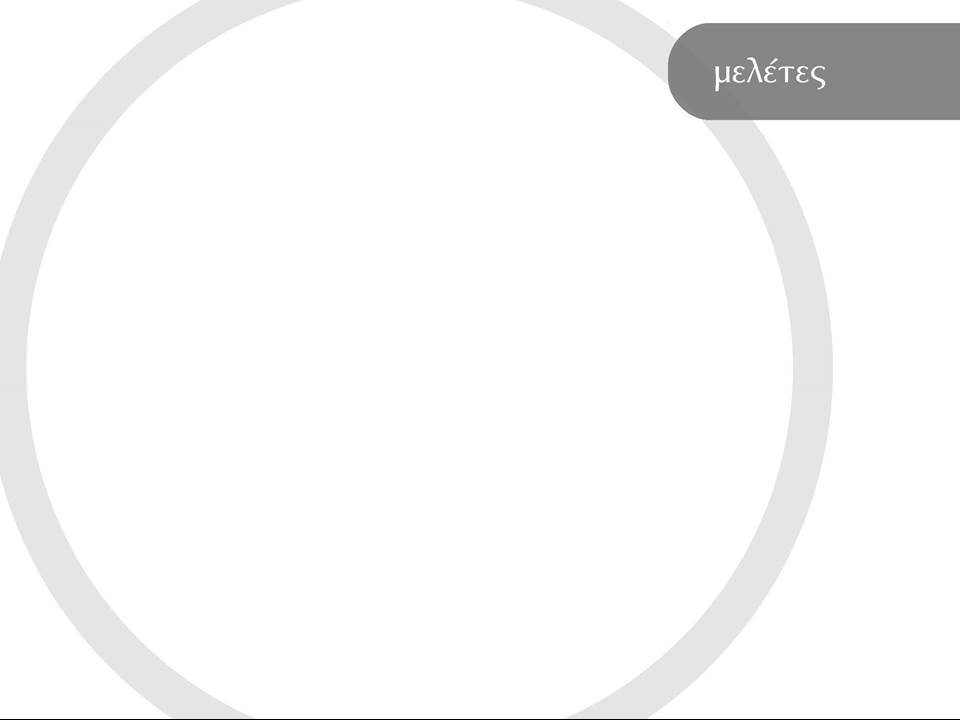
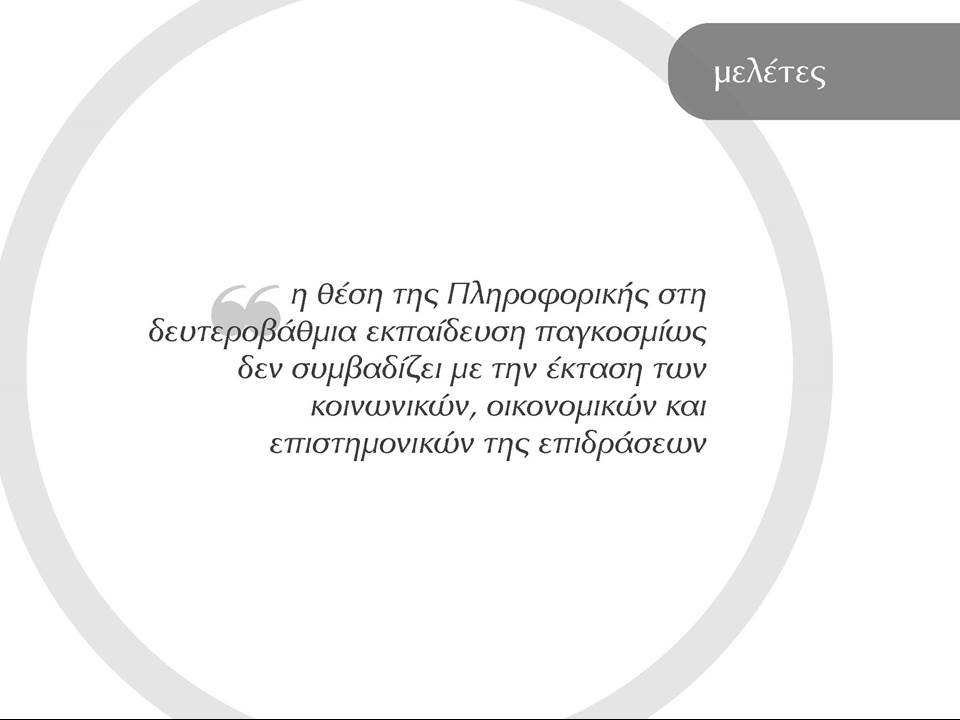
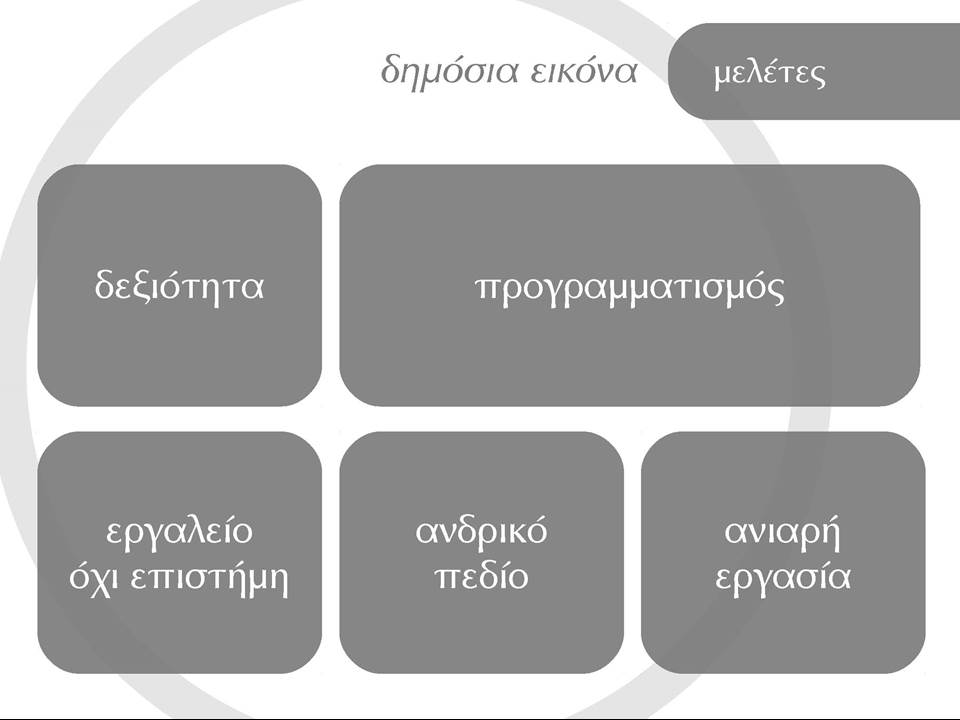
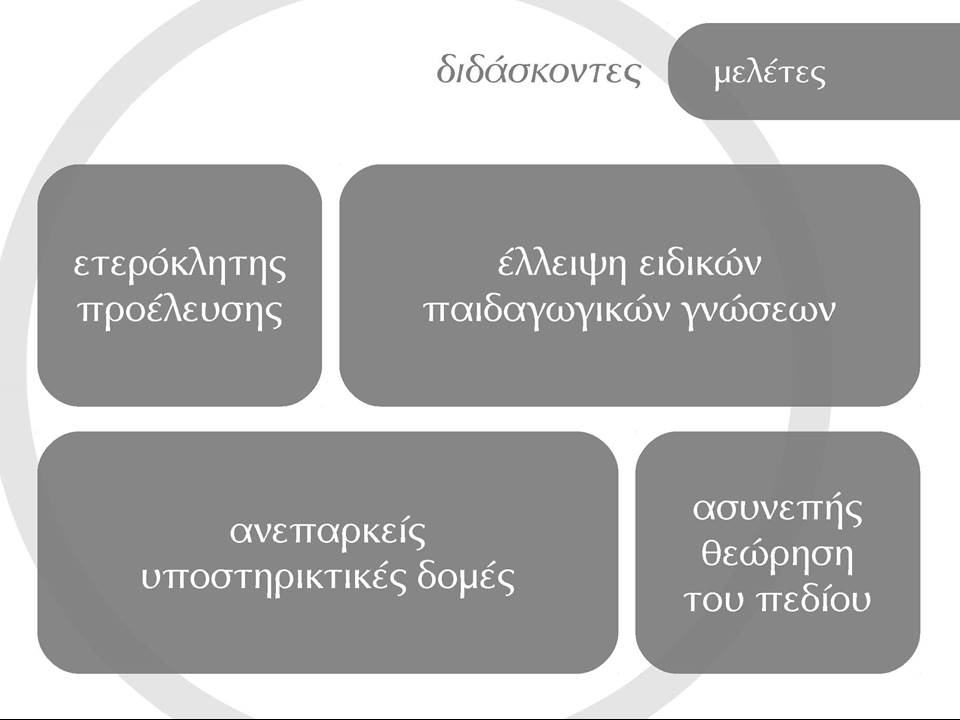
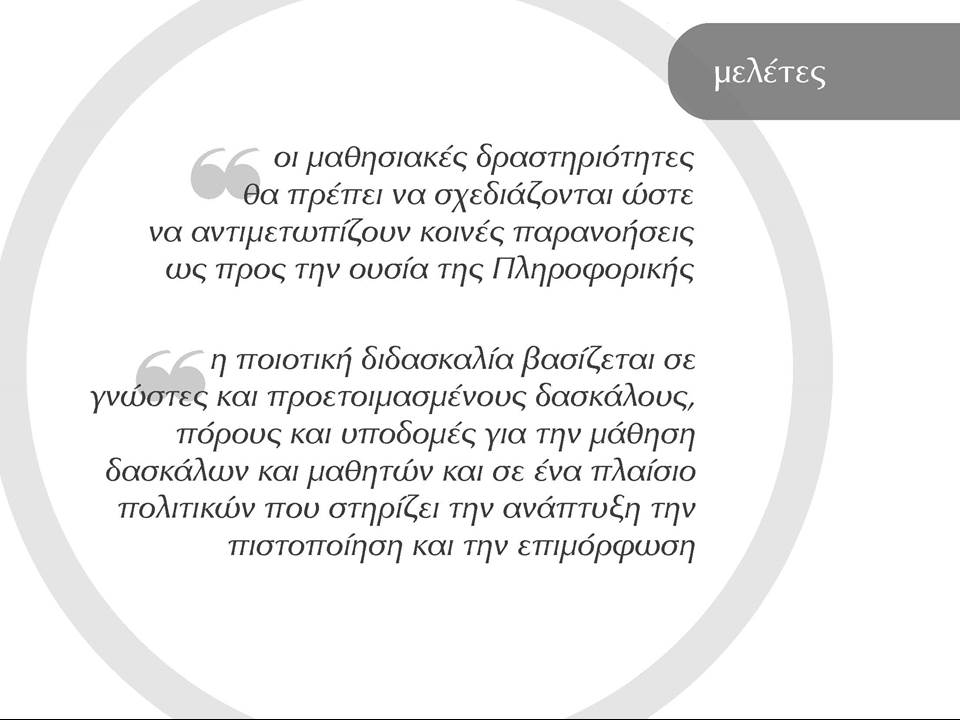
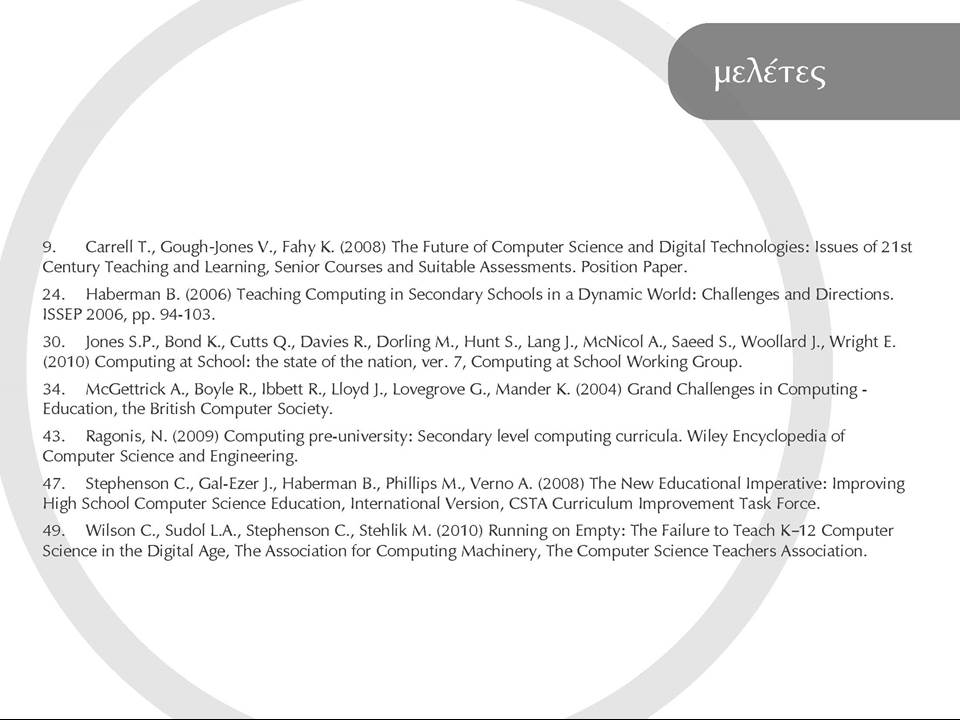
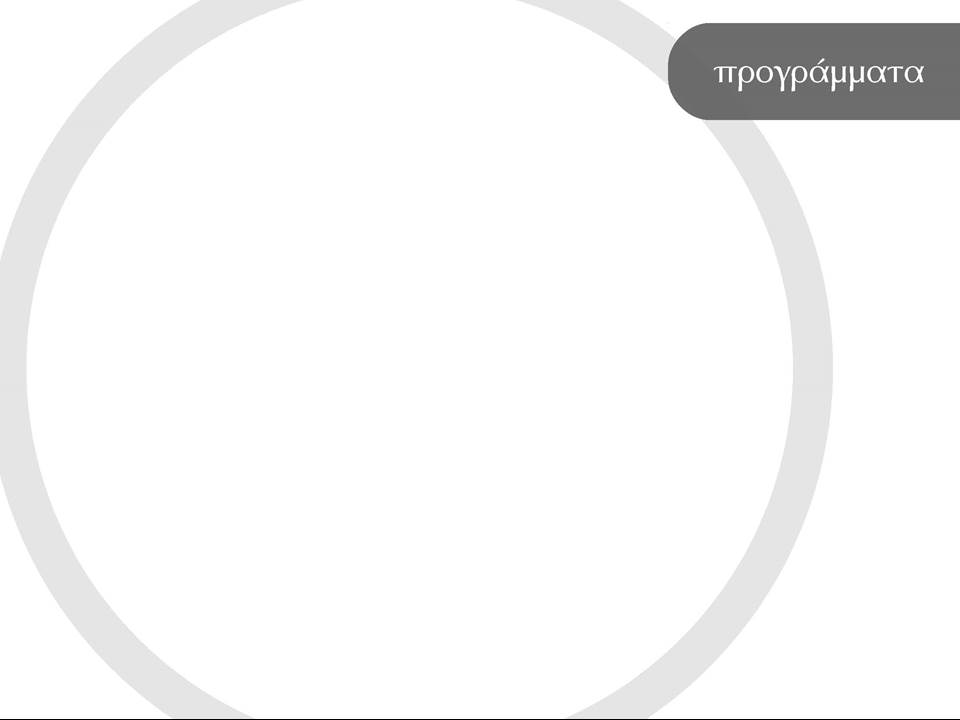
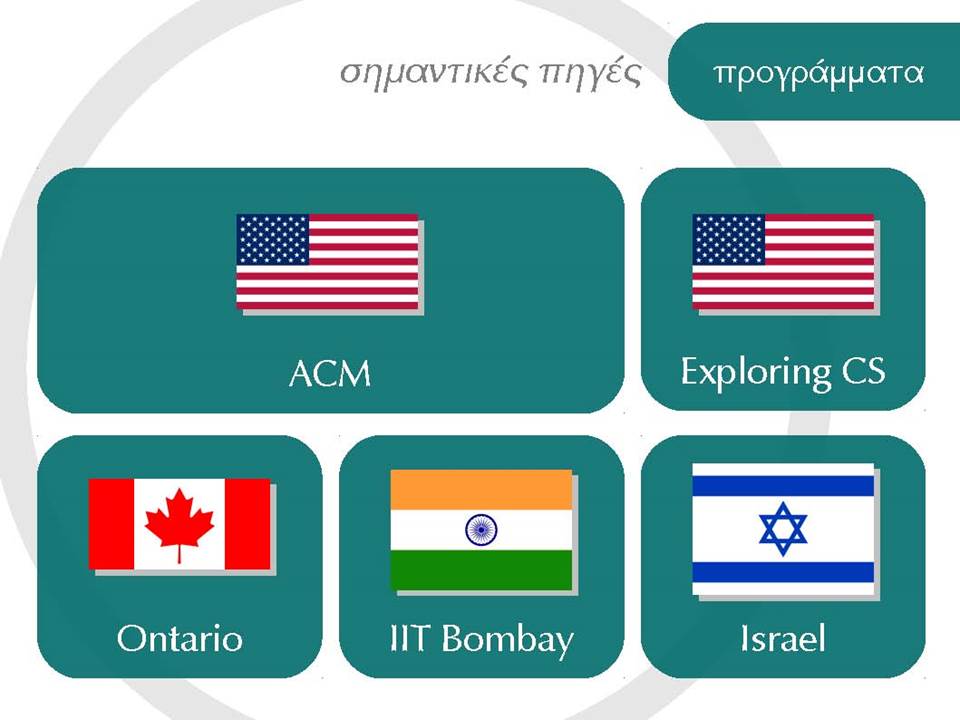
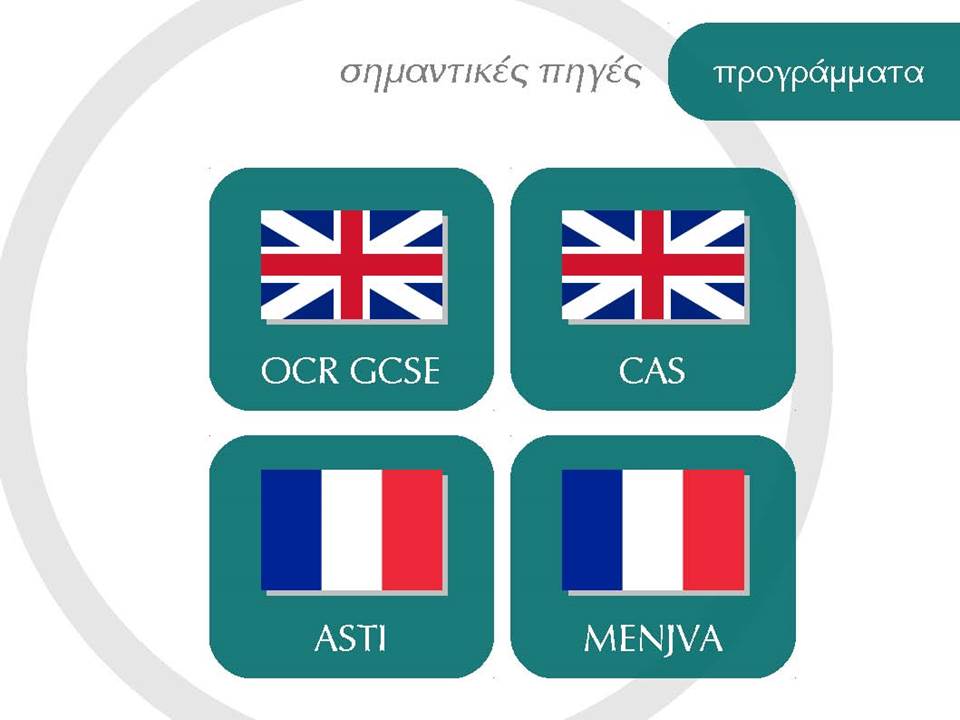
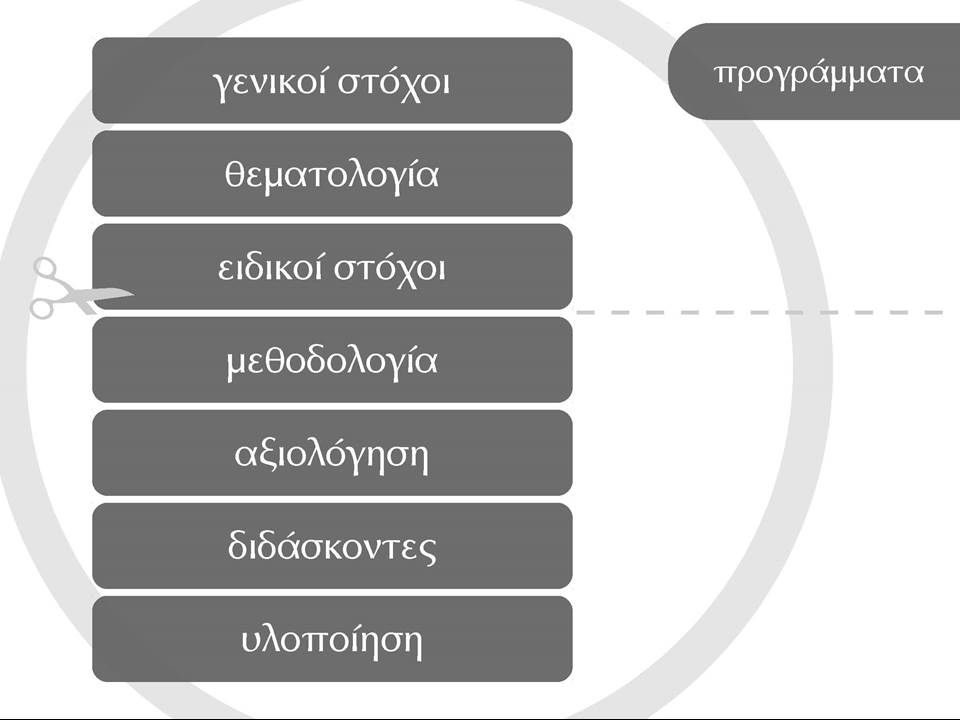
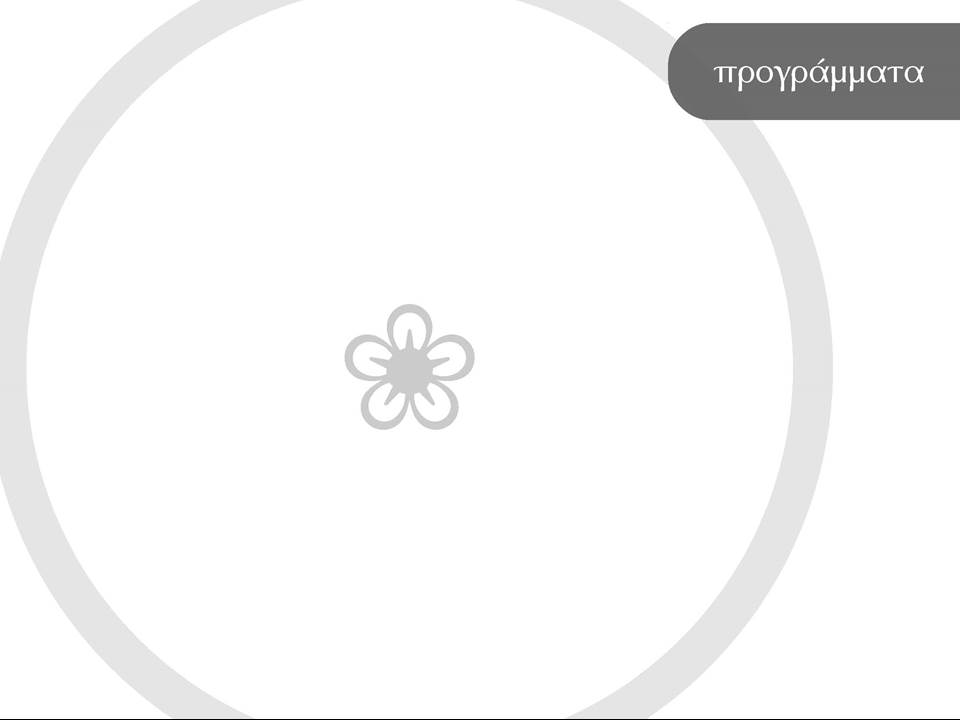

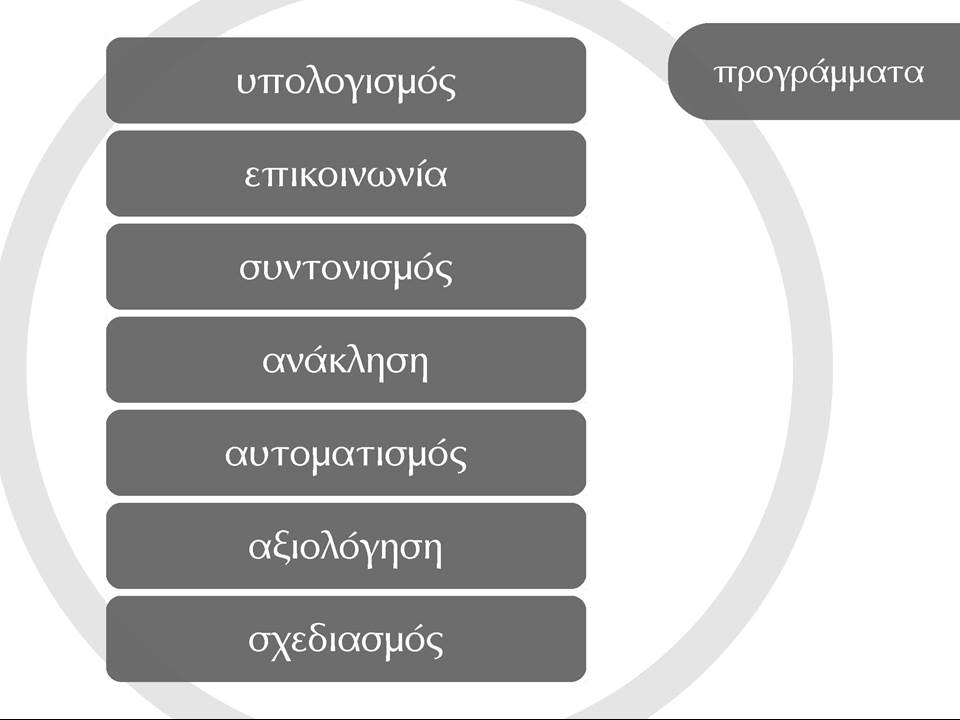
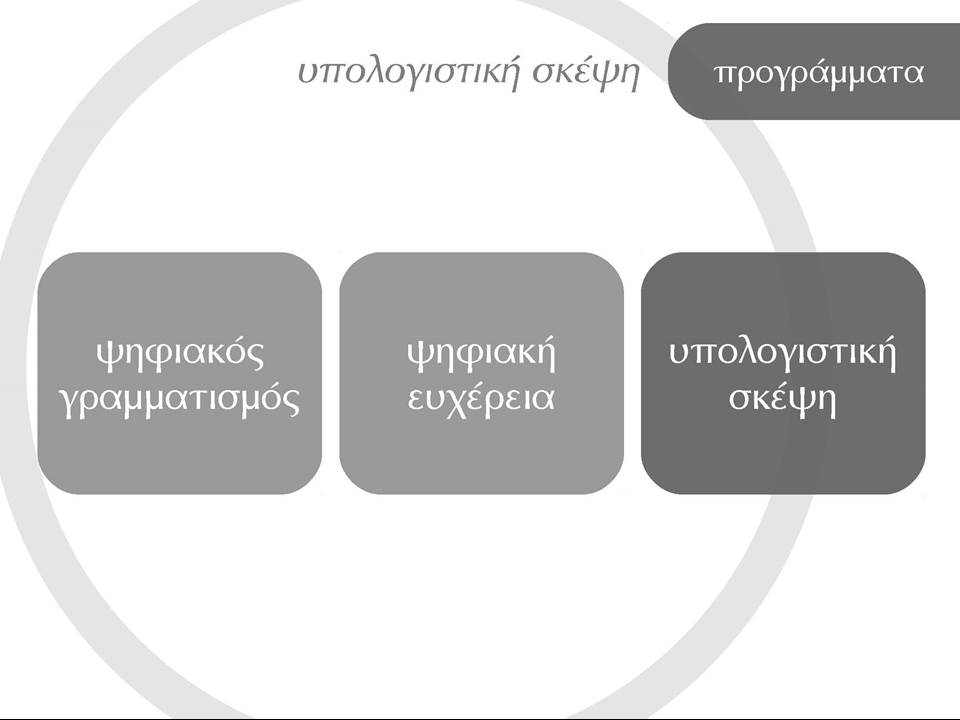
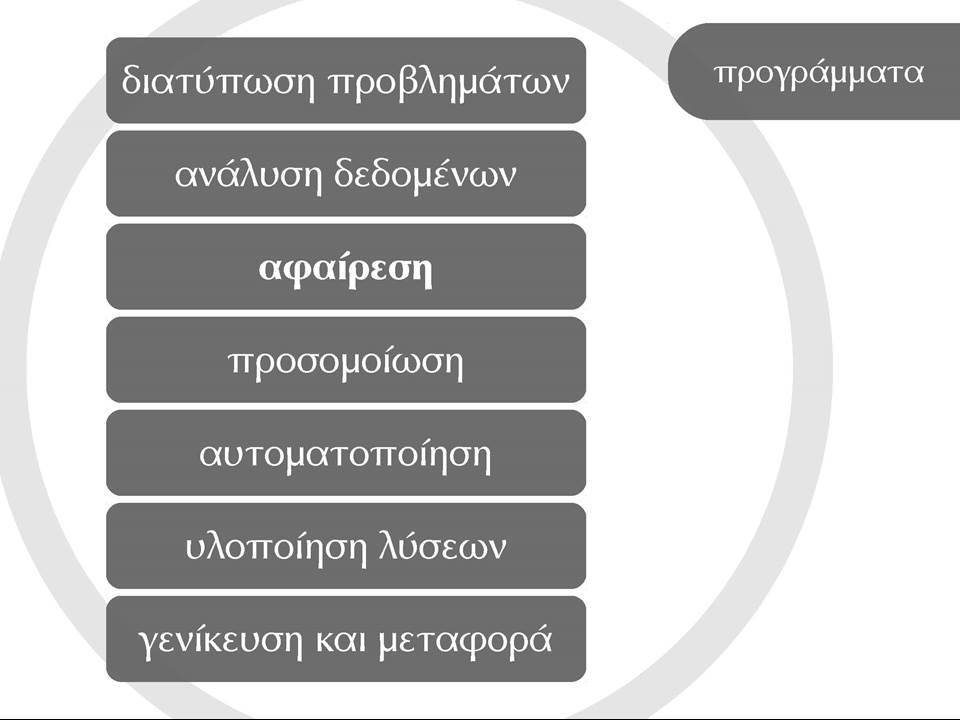
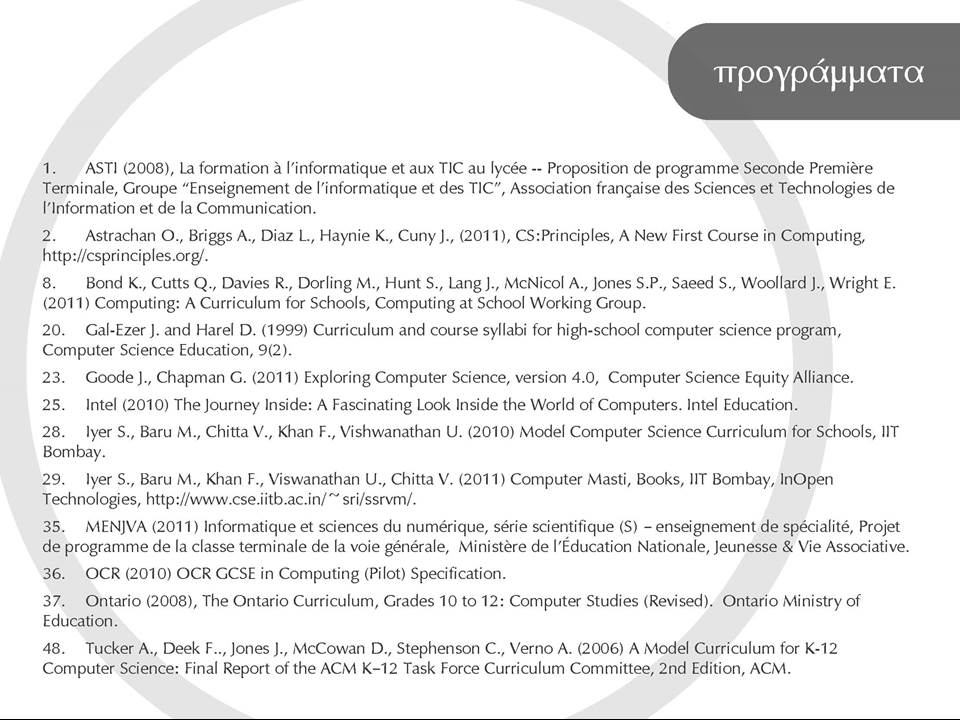
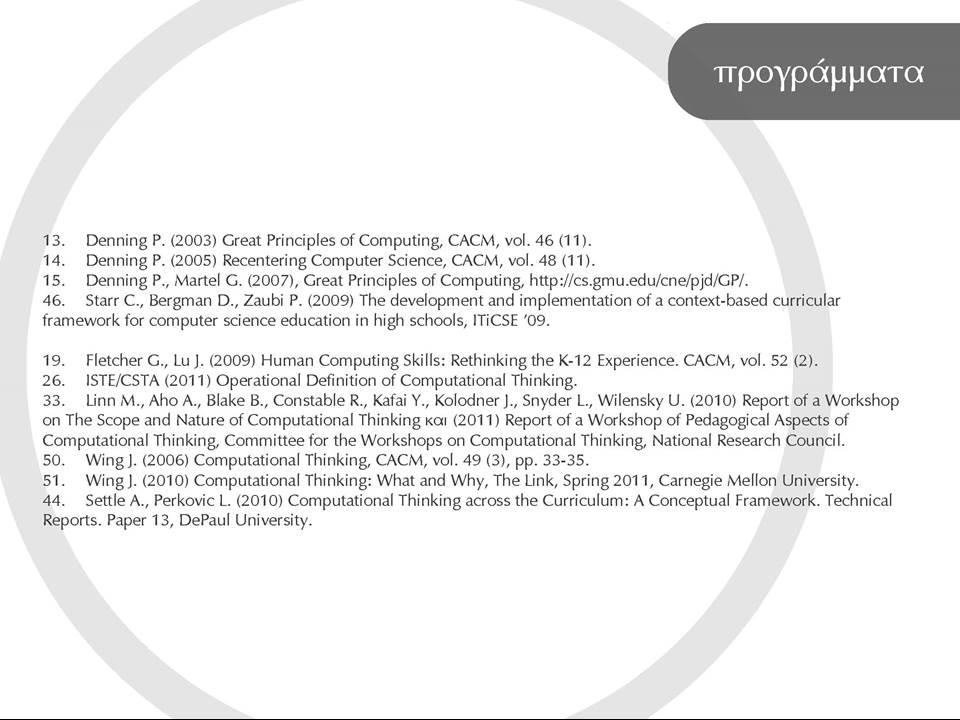
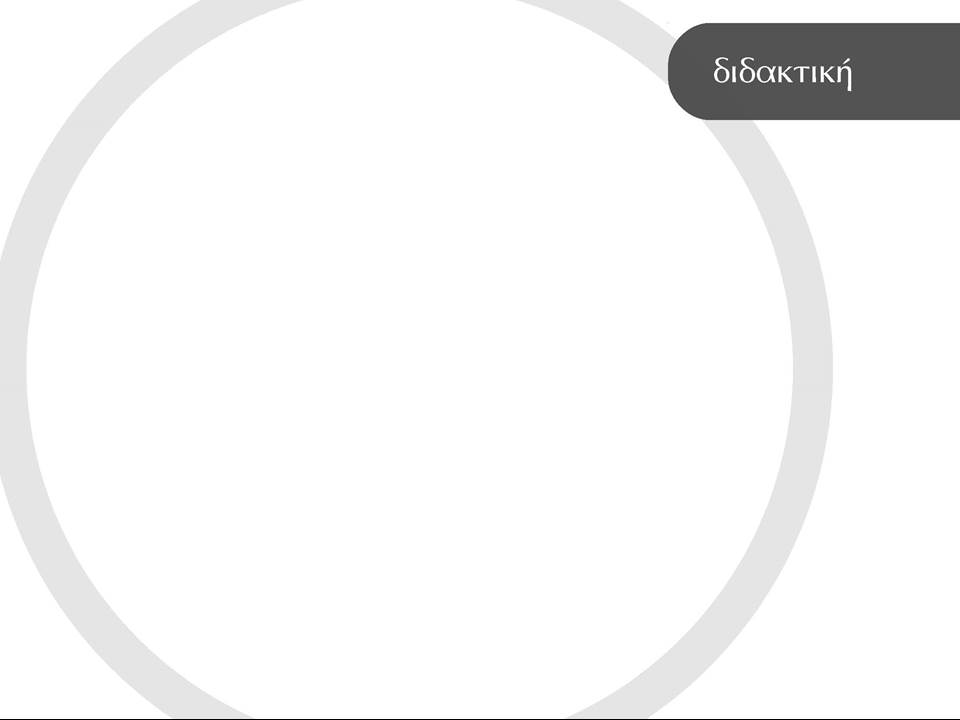
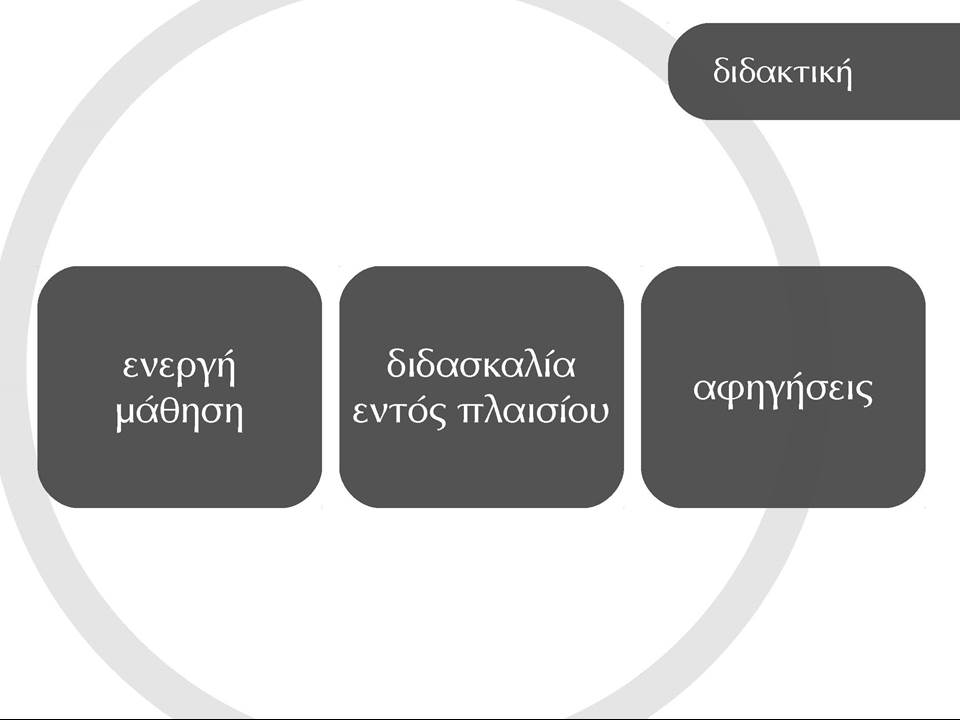
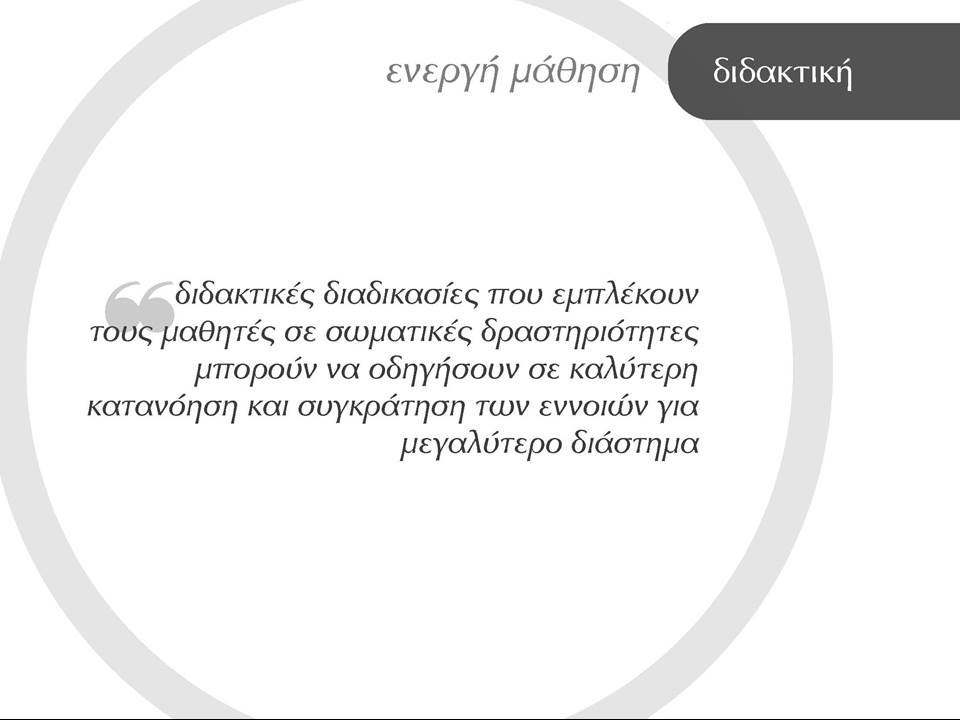
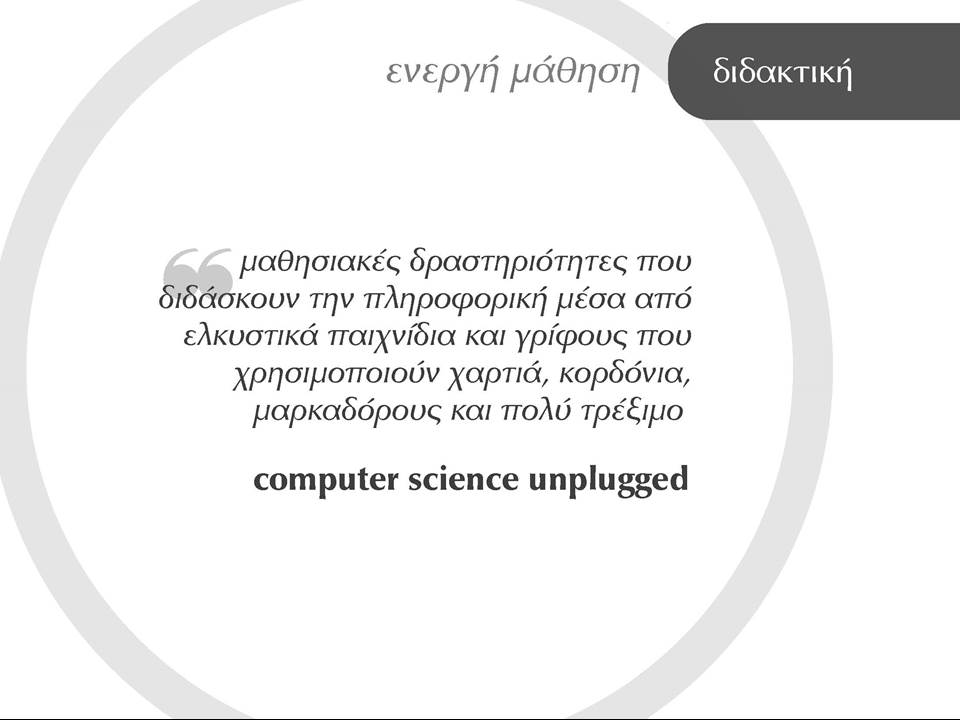
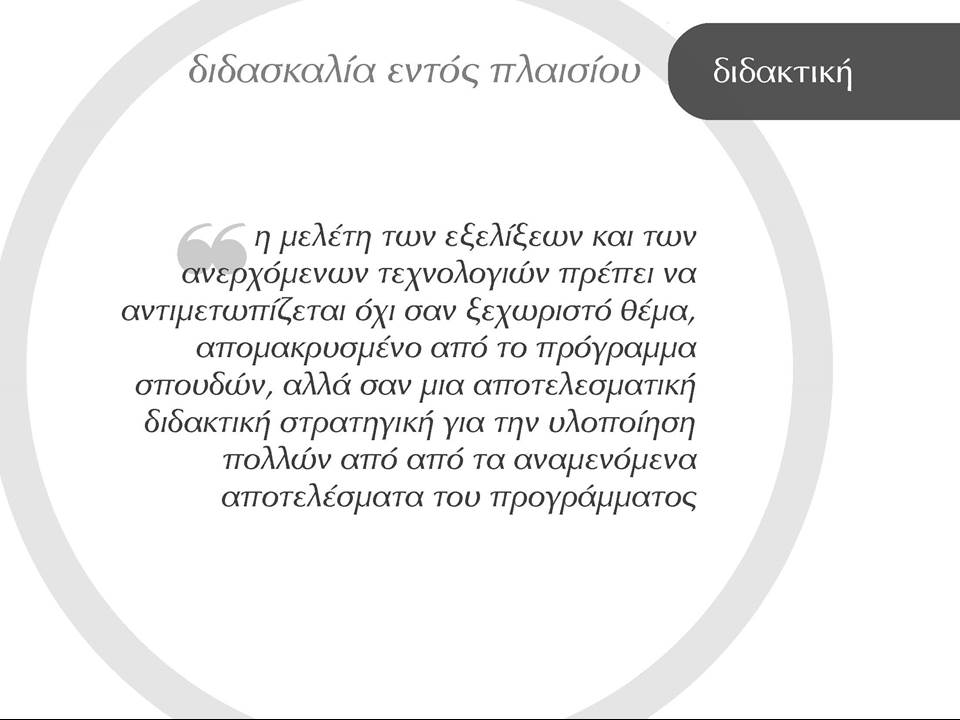
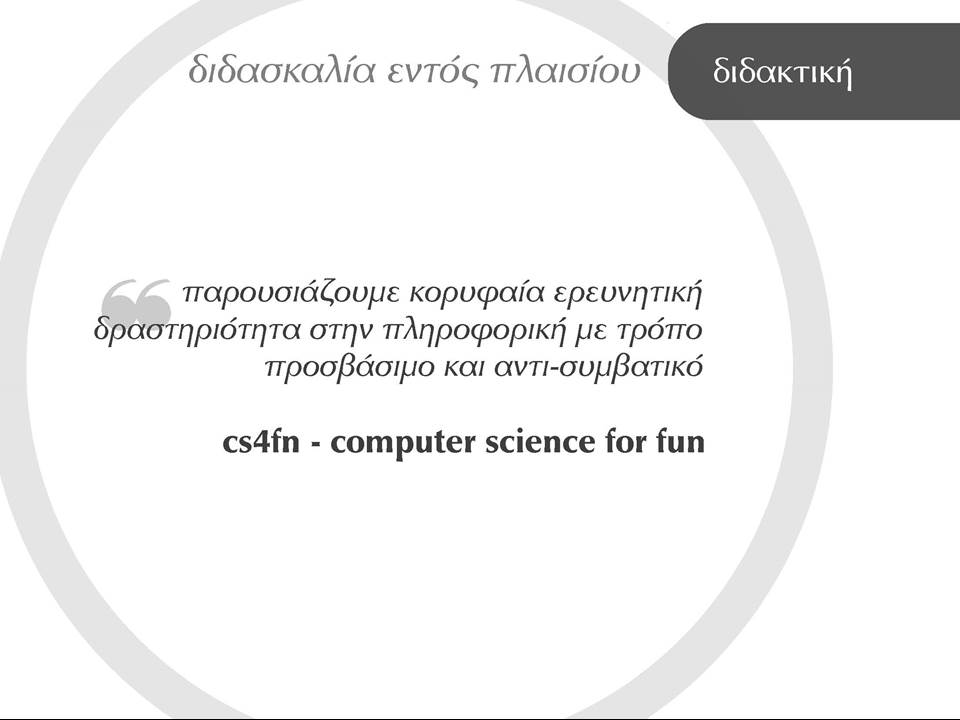
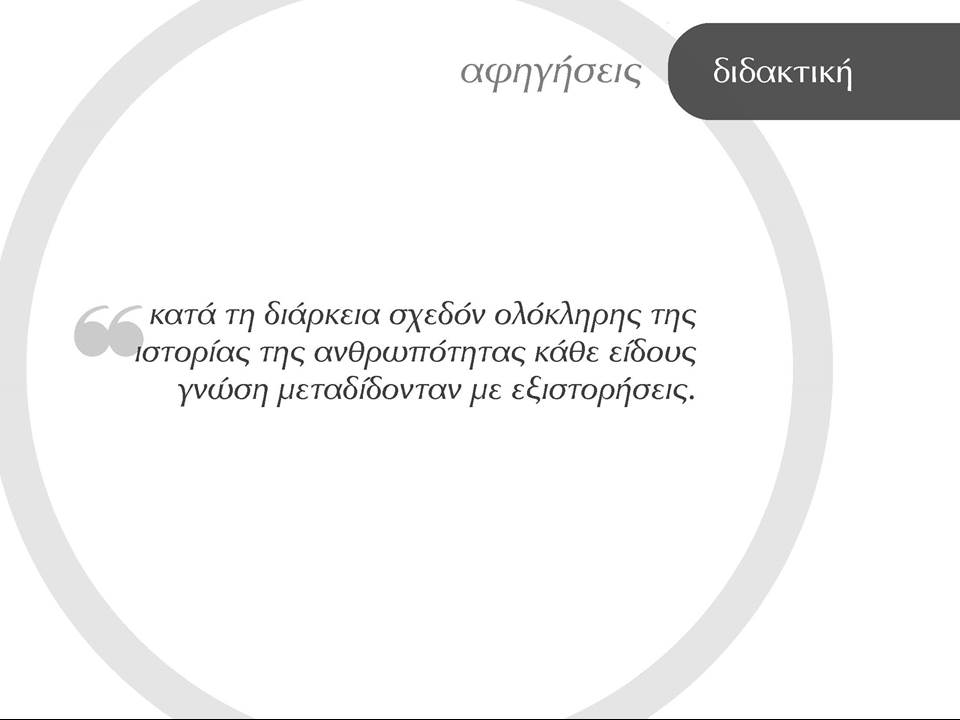
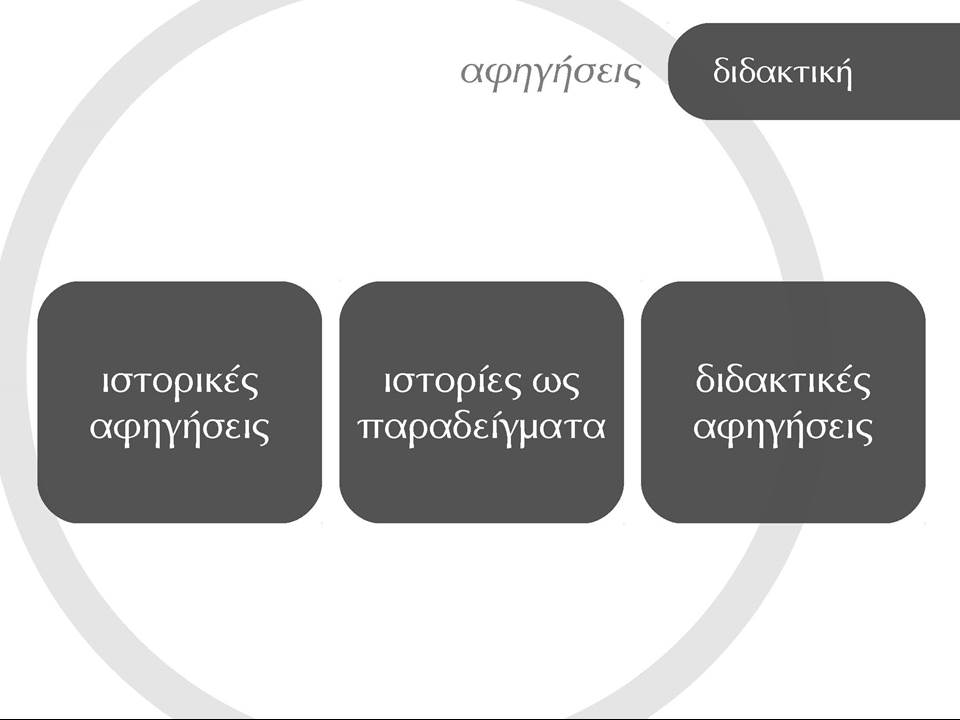
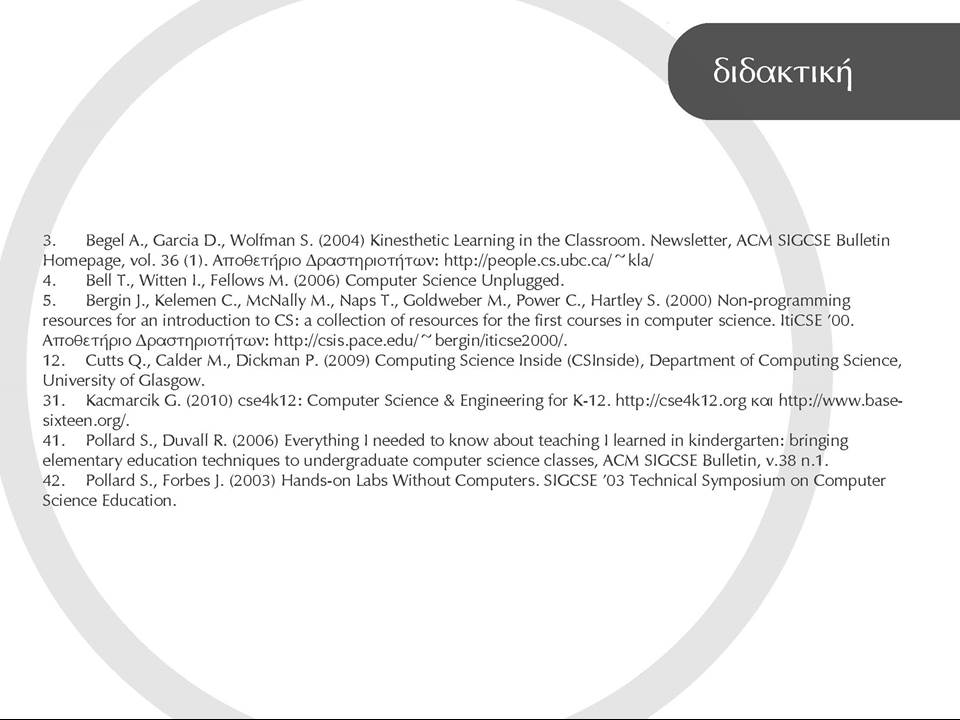

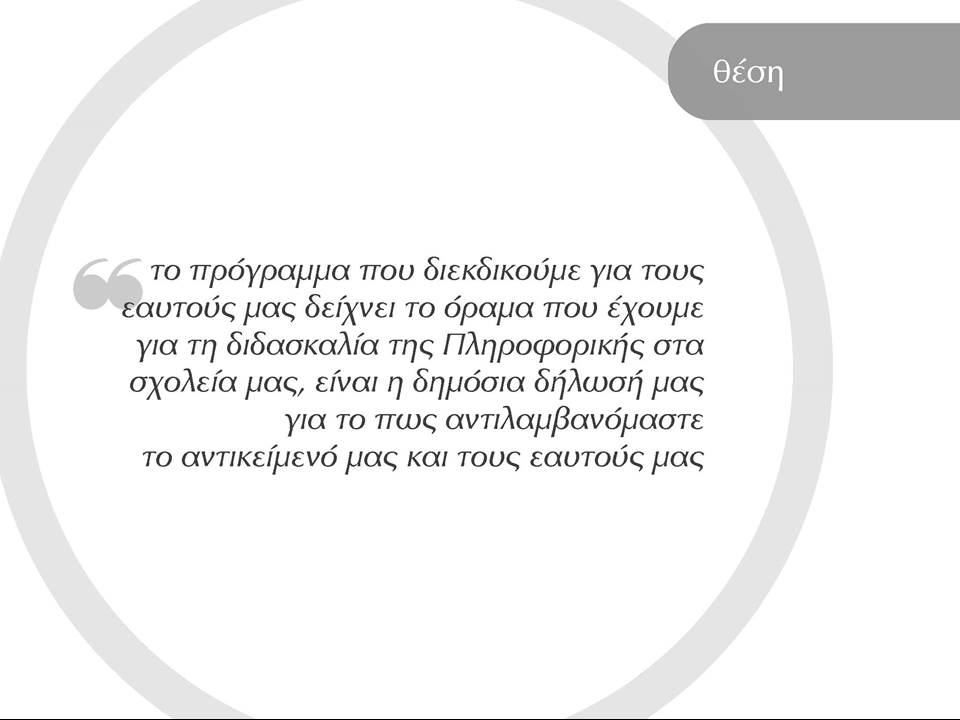
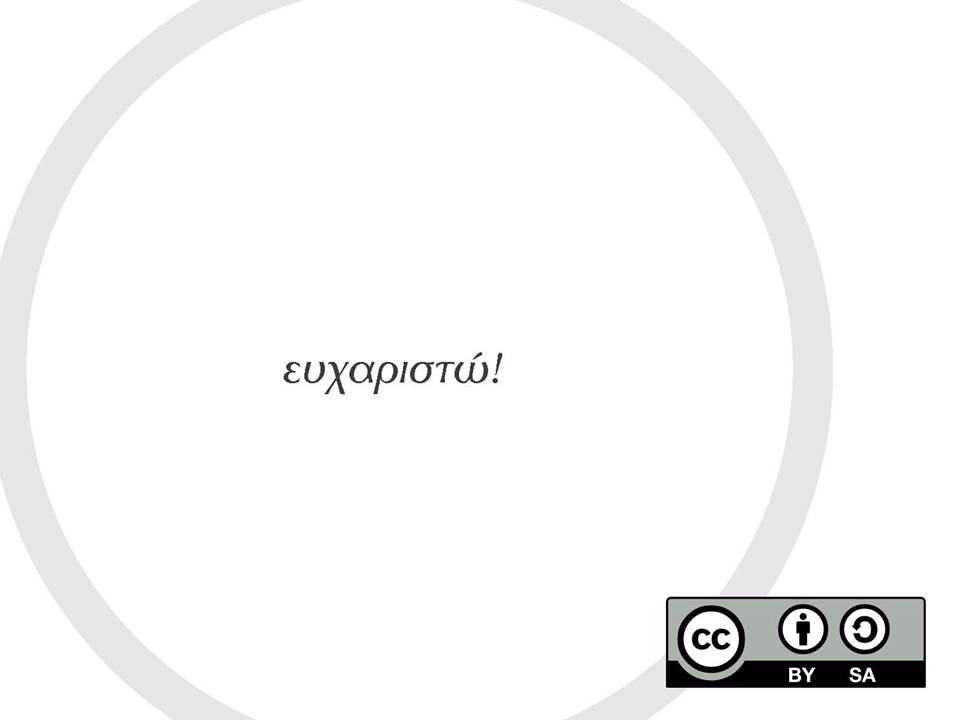
Μπουκέας Γιώργος
Γλώσσα
Ελληνική
Ημερομηνία
09/10/2011
Διάρκεια
17:45
Εκδήλωση
Η Πληροφορική στην Εκπαίδευση
Χώρος
Πανεπιστήμιο Πειραιώς
Διοργάνωση
Ελληνική Εταιρία Επιστημόνων και Επαγγελματιών Πληροφορικής και Επικοινωνιών
Τμήμα Πληροφορικής - Ιόνιο Πανεπιστήμιο
Τμήμα Πληροφορικής - Πανεπιστήμιο Πειραιώς
Κατηγορία
Εκπαίδευση, Πληροφορική
Ετικέτες
δευτεροβάθμια εκπαίδευση, υπολογιστική σκέψη, διδακτική, διδακτικές μέθοδοι, ενεργή μάθηση, κιναισθητικές δραστηριότητες, πληροφορική
Η θέση της Πληροφορικής στη δευτεροβάθμια εκπαίδευση, παγκοσμίως, δεν συμβαδίζει με την έκταση των κοινωνικών, οικονομικών και επιστημονικών της επιδράσεων. Στην εργασία αυτή (α) συνοψίζονται τα συμπεράσματα μιας πλειάδας μελετών ως προς αυτό το παράδοξο, (β) εξετάζονται προγράμματα σπουδών δευτεροβάθμιας εκπαίδευσης που φιλοδοξούν να είναι φορείς αλλαγής και (γ) διερευνώνται πηγές εκπαιδευτικού υλικού με προτάσεις για τη διδασκαλία της Πληροφορικής. Σκοπός της ομιλίας είναι να εντοπιστούν κοινές συνιστώσες και να εξαχθούν συμπεράσματα που θα μπορούσαν να αποτελέσουν αφετηρία συζητήσεων για το περιεχόμενο και τη διδακτική νέων προγραμμάτων σπουδών για τα μαθήματα Πληροφορικής.
Ο Γιώργος Μπουκέας γεννήθηκε το 1976 στην Αθήνα. Είναι απόφοιτος του Τμήματος Πληροφορικής και Τηλεπικοινωνιών του Πανεπιστημίου Αθηνών και κάτοχος M.Sc. in Advanced Computing από το Imperial College του Λονδίνου. Διορίστηκε ως μόνιμος καθηγητής Πληροφορικής το 2006, ενώ προηγουμένως εργάστηκε κυρίως σε ερευνητικά προγράμματα του Πανεπιστημίου Αθηνών στον τομέα της Τεχνητής Νοημοσύνης και της Επιχειρησιακής Έρευνας. Εκτός από τα διδακτικά του καθήκοντα έχει ασχοληθεί με την παραγωγή πέντε μαθητικών ταινιών μικρού μήκους, με μεταφράσεις καθώς και με τη γραφιστική. Είναι παντρεμένος με δύο παιδιά και ζει στη Χίο.
1. ASTI (2008), La formation a l' informatique et aux TIC au lycee -- Proposition de programme Seconde Premiere Terminale, Groupe "Enseignement de l' informatique et des TICh, Association francaise des Sciences et Technologies de
l' Information et de la Communication.
2. Bischof E., Mittermeir R.T., (2008) Informatik erLeben, Institut fur Informatik-Systeme, Alpen-Adria Universitat Klagenfurt.
3. Bishop C., (2008) Under the Surface: Hi-Tech Trek, Royal Institute of Great Britain, Christmas Lectures 2008.
4. Bond K., Cutts Q., Davies R., Dorling M., Hunt S., Lang J., McNicol A., Jones S.P., Saeed S., Woollard J., Wright E. (2011) Computing: A Curriculum for Schools, Computing at School Working Group.
5. Curzon P. (2002) Computing Without Computers - A Gentle Introduction to Computer Programming, Data Structures and Algorithms.
6. Curzon P., McOwan P., Black J. (2011) cs4fn: Computer Science for Fun, School of Electronic Engineering and Computer Science of Queen Mary.
7. Cutts Q., Calder M., Dickman P. (2009) Computing Science Inside (CSInside), Department of Computing Science, University of Glasgow.
8. Denning P., Rosenbloom P. (2009) Computing: The Fourth Great Domain of Science, CACM, vol. 52 (9).
9. Eurydice (2004) Key Data on Information and Communication Technology in Schools in Europe, Eurydice information network, European Commission.
10. Fletcher G., Lu J. (2009) Human Computing Skills: Rethinking the K-12 Experience. CACM, vol. 52 (2).
11. Gal-Ezer J. and Harel D. (1999) Curriculum and course syllabi for high-school computer science program, Computer Science Education, 9(2).
12. Gleick J. (2011), The Information: A History, A Theory, A Flood, Pantheon.
13. Goode J., Chapman G. (2011) Exploring Computer Science, version 4.0, Computer Science Equity Alliance.
14. Haberman B. (2006) Teaching Computing in Secondary Schools in a Dynamic World: Challenges and Directions. ISSEP 2006, pp. 94-103.
15. Intel (2010) The Journey Inside: A Fascinating Look Inside the World of Computers. Intel Education.
16. Iyer S., Baru M., Chitta V., Khan F., Vishwanathan U. (2010) Model Computer Science Curriculum for Schools, IIT Bombay.
17. Jones S.P., Bond K., Cutts Q., Davies R., Dorling M., Hunt S., Lang J., McNicol A., Saeed S., Woollard J., Wright E. (2010) Computing at School: the state of the nation, ver. 7, Computing at School Working Group.
18. Linn M., Aho A., Blake B., Constable R., Kafai Y., Kolodner J., Snyder L., Wilensky U. (2010) Report of a Workshop on The Scope and Nature of Computational Thinking και (2011) Report of a Workshop of Pedagogical Aspects of Computational Thinking, Committee for the Workshops on
Computational Thinking, National Research Council.
19. McGettrick A., Boyle R., Ibbett R., Lloyd J., Lovegrove G., Mander K. (2004) Grand Challenges in Computing - Education, the British Computer Society.
20. MENJVA (2011) Informatique et sciences du numerique, serie scientifique (S) - enseignement de specialite, Projet de programme de la classe terminale de la voie generale, Ministere de l'Education Nationale, Jeunesse & Vie Associative.
21. Ontario (2008), The Ontario Curriculum, Grades 10 to 12: Computer Studies (Revised). Ontario Ministry of Education.
22. Page D., Smart N., Montanaro A., Flach P., Kovacs T., Marshall J. (2008) What is Computer Science, Department of Computer Science, University of Bristol.
23. Papadimitriou C. (2003) MythematiCS: In Praise of Storytelling in the Teaching of Computer Science and Math. ACM SIGCSE Bulletin, vol. 35 (4).
24. Pollard S., Duvall R. (2006) Everything I needed to know about teaching I learned in kindergarten: bringing elementary education techniques to undergraduate computer science classes, ACM SIGCSE Bulletin, v.38 n.1.
25. Pollard S., Forbes J. (2003) Hands-on Labs Without Computers. SIGCSE '03 Technical Symposium on Computer Science Education.
26. Ragonis, N. (2009) Computing pre-university: Secondary level computing curricula. Wiley Encyclopedia of Computer Science and Engineering.
27. Settle A., Perkovic L. (2010) Computational Thinking across the Curriculum: A Conceptual Framework. Technical Reports. Paper 13, DePaul University.
28. Shasha D., Lazere C. (1995), Out of their minds, the lives and discoveries of 15 great computer scientists, Copernicus.
29. Starr C., Bergman D., Zaubi P. (2009) The development and implementation of a context-based curricular framework for computer science education in high schools, ITiCSE '09.
30. Stephenson C., Gal-Ezer J., Haberman B., Phillips M., Verno A. (2008) The New Educational Imperative: Improving High School Computer Science Education, International Version, CSTA Curriculum Improvement Task Force.
31. Tucker A., Deek F.., Jones J., McCowan D., Stephenson C., Verno A. (2006) A Model Curriculum for K-12 Computer Science: Final Report of the ACM K.12Task Force Curriculum Committee, 2nd Edition, ACM.
32. Wilson C., Sudol L.A., Stephenson C., Stehlik M. (2010) Running on Empty: The Failure to Teach K.12 Computer Science in the Digital Age, The Association for Computing Machinery, The Computer Science Teachers Association.
33. Wing J. (2006) Computational Thinking, CACM, vol. 49 (3), pp. 33-35.
34. Wing J. (2010) Computational Thinking: What and Why, The Link, Spring 2011, Carnegie Mellon University.


